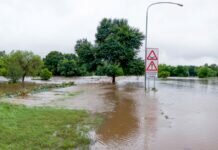By
Reflecting on my journey, my educational choices as a woman have been driven by curiosity and a desire to solve problems. Studying civil engineering and environmental technology shaped my creative thinking, strengthened my intellectual development, equipped me with skills to design things that make our world a better place to live in, and protect people from adverse environmental effects. My journey continues and I’m still learning.
Technology is not the mystery it once was. Across societies and industries, the pace of technological adoption has been rapid and technology is now embedded in almost all aspects of our lives. With this adoption comes a better understanding of what technology can do, and its ability to transform our world.
In the water sector in particular, technology is transforming and improving processes which are instrumental to ensuring universal access to safe water and sanitation for all. As an engineer with over a decade’s experience in the sector, I have seen first-hand, technology’s ability to support solutions for hard knock challenges like gender inequality, which has great consequences for women and girls.
The Intersection of Technology, Water and Sanitation for Women and Girls
Across the world, Women and girls are disproportionately affected by lack of, or poor access to water and sanitation services. This affects their health with higher risks of infections and death; it also impacts their safety, dignity, and reduces their right to educational and economic opportunities.
In many African countries, girls spend time collecting water for the family and thereby miss classes or are unable to attend school. Worldwide, girls and women spend an average 200 million hours every day collecting water, according to UNICEF. Lack of inadequate sanitation also makes it difficult for girls to attend school during their menstruations, thereby affecting their right to education.
Utilising every means possible – including the deployment of technology – goes a long way in providing women and girls with the fundamental right of access to water and sanitation.
When women and girls have access to water and sanitation, their safety is ensured, health conditions improve, their confidence is boosted, and there’s an increase in personal and economic development giving them a full role in the society. Girls can also go to school confidently, uninterrupted, and achieve their full potential.
The African Development Bank’s Rwanda Sustainable Water Supply and Sanitation program, which financed the construction of water supply systems and sanitation facilities is as an example of this. Through the program, about 10,000 girls in public schools in 14 rural districts were provided with access to water, handwashing facilities and gender sensitive latrines.
We must understand that no tangible development can be achieved if we leave women and girls behind or vulnerable. To achieve desired developments at all levels, technological and innovative solutions that respond to the needs of women and girls must be part of the solutions mix. This is seen in the impact of the Regional Information and Communication Technologies Centre of Excellence Project financed by the African Development Bank, where a young woman, Victoria Munguti, a graduate from the Carnegie Mellon University-Africa (CMU) in Kigali, was empowered to create “Hepta Analytics”, a start-up focused on big data analytics and software development to aid business growth.
Technology can improve women’s lived experiences and women, too, can use technology to change the world.
Transforming the Water Sector Through Technology
There is no doubt about the place of technology in our world today. In the water sector, not only is it used in everyday activities like planning and information collection, but it is also faster, improves accuracy in analysis, offers advanced designs and allows innovative solutions in the management of water. In utilities in particular, technology optimizes water services, improves efficiency and effectiveness, and saves cost.
In water infrastructure development, the African Development Bank promotes the use of today’s technology to ensure quality, efficiency, and sustainability. Recently, the Bank financed projects in Rwanda where the Kigali Bulk Water Treatment Plant and Gihira Water Treatment Plant respectively introduced Supervisory Control and Data Acquisition system (SCADA). Managed by a young lady at Kigali’s Water and Sanitation Corporation’s water treatment plant, this system helped to monitor and efficiently address problems in Water Treatment Plants and distribution networks to support key personnel and help them see and address problems in real-time.
In my work as a principal water resources management and development officer, I’ve also used specific technological applications to handle large volumes of data and make crucial business decisions based on the insights derived from technological sources which reduce the scope of errors from manual operations.
Many girls desire to be much more than their gender. They have dreams, skills and talents which must be developed, and like me, they may also desire to use their skills and talents to make the world a better place.
We must continue to make progress towards equality, ensuring adequate representation and opportunities. We need more opportunities for girls, and more women to be positive role models who support those behind them, teach by example, and encourage curiosity in girls to expand their interests. A network of peers and mentors and the provision of accessible learning opportunities are also important.












































